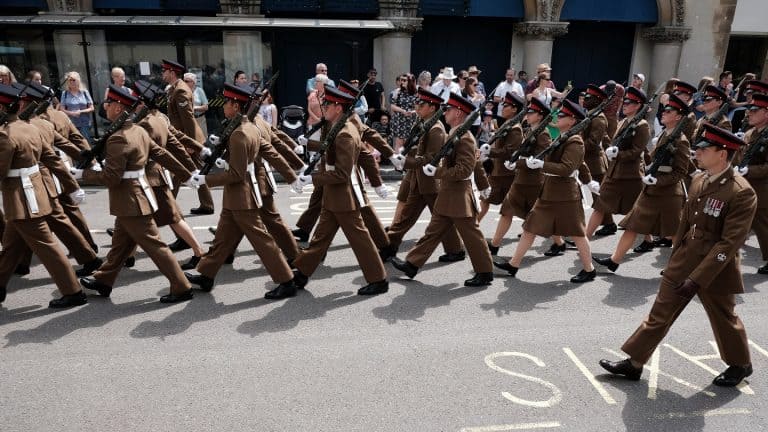Rape within the Armed Forces – What is it and what are your options?
Rape or sexual assault are serious crimes which sadly occur within our Armed Forces. The Sun newspaper reported recently that thirty five female personnel reported being raped last year, which was an increase compared to previous years. Clearly, rape within our Armed Forces is something that we need to talk about. This blog discusses the legal definition of rape and what options you have if you have been raped.
What is rape?
Rape is defined as ‘when a person intentionally penetrates another’s vagina, anus or mouth with a penis, without the other person’s consent. Assault by penetration is when a person penetrates another person’s vagina or anus with any part of the body other than a penis, or by using an object, without the person’s consent.’ (Source Metropolitan Police)
What is consent?
The Met Police advise that consent is what separates sex, or a gesture of affection, from sexual assault. Both persons involved should agree to what is happening by choice and have the freedom and the mental capacity to make that choice. If you have not been given the choice to consent then it should be considered rape or sexual assault.
The law states that lack of consent is when;
- The victim receives force or threats;
- The victim was unaware of what was occurring and/or incapable of giving valid consent based on evidence of drink, drugs, sleep, age or mental disability;
- The victim was deceived as to the identity of the person with whom he/she had intercourse.
Source: Crown Prosecution Service
What should I do if I have been raped?
There are no rules on what you should and should not do and it is likely to have been a very traumatic experience for you. Here are some of your options:
- If you feel able to, you should report the matter to the Police (either civilian or Royal Military Police (RMP)
- Seek medical attention as you may have been physically harmed. This can be hospital, a local GP or your Medical Officer.
- If you feel able to, discuss it with a friend or family member who you know will be able to provide you with some emotional support
- You may also want to raise a service complaint
We understand that you may be reluctant to speak about what happened for fear of not being believed or because you think it may affect your own relationships or your career. What you should try to do is put yourself in a safe environment to protect yourself from the person who assaulted you. By reporting the rape to the police or your Chain of Command it should mean that you are protected from that person.
What happens if I report it to the police?
The police should investigate the crime and the prosecution authority will make a decision whether to charge the person who raped you. If they are charged, it may lead to a Court martial hearing or a hearing at the Crown Court. If you do report it to the police you can expect the following:
- A duty to investigate and gather evidence – if it was recent the victim may receive a sexual assault forensic exam, this is to collect DNA to help identify the wrongdoer
- If there is sufficient evidence the police will look to charge a suspect
- Prosecution in court – the wrongdoer is either acquitted, convicted or prosecution is dropped or cannot continue
In order to establish rape or assault by penetration as an offence under the Sexual Offences Act 2003 the prosecution must prove that consent was not given.
Once the Trial has taken place at Court, you can normally expect a verdict of guilty or not guilty and sentencing of the person who has assaulted you.
Should I raise a service complaint?
In addition to complaining to the police, you may want to raise a service complaint about being raped. This might be necessary where the police have decided not to prosecute the person who raped you or where the prosecution has been unsuccessful.
Service complaints are also important for making sure that lessons are learnt from these events. You can ask as part of the remedy for your service complaint to ensure that proper training is given to your colleagues and/or Chain of Command, if you feel you were not supported when you first raised concerns or following the rape. You can also ask that disciplinary action is taken against anyone who has assaulted you.
There are strict deadlines for service complaints, which should be made within three months of the latest incident you are complaining about. Just because the police are investigating does not mean you should delay raising a complaint. If there is an ongoing criminal investigation, the service complaint process will often be postponed until after the prosecution.
For further information on making a service complaint and the process please access the following link.
Can I also make a civil claim for compensation?
Rape or sexual assault can give rise to a civil claim against the wrongdoer and/or their employer. For example, if you have been raped or sexually assaulted by another service person, you will be able to bring a civil claim against them and potentially against the Ministry of Defence, which has a duty of care to you and can in some circumstances be responsible for the criminal acts of service personnel.
If you are successful in a civil claim, you can be compensated for:
- The injury you have suffered, whether physical or psychological
- Any impact on your career, including loss of earnings, benefits and pension
What are the time limits for a civil claim?
Civil claims normally have to be issued within three years of the first incident of rape or serious sexual assault. There are ways of extending time in exceptional circumstances, but you would need to take advice from a solicitor at an early stage.
Can I apply under the Criminal Injuries Compensation Scheme?
If the matter is being investigated by the police, once the initial investigations have concluded and/or there has been a criminal trial or court martial, victims of crime can apply for compensation to the Criminal Injuries Compensation Authority (CICA). You can do this in addition to making a civil claim for compensation.
In order to be eligible to make a claim under the Scheme the victim must:
- Make an application within two years of the incident which gave rise to a criminal injury
- Be either a member of the Armed Forces or an ‘accompanying dependant’; defined as:
- a spouse
- civil partner
- child, step-child or adopted child
Please access the scheme rules for further information.
If you have suffered harm as a result of a criminal injury abroad, you may also have the rights to compensation under the Criminal Injuries Overseas Compensation Scheme.
Legal advice
Rape can affect anyone, regardless of their gender, age and rank. Victims can find it hard to speak up and ask for help and there are many potential steps that they may have to take in order to achieve justice and/or compensation. It is crucial that you take advice from a solicitor at an early stage.
These types of cases are sensitive and difficult. It is important to be listened to, heard and believed and here at BBK we pride ourselves in doing so. Our specialist team has represented individuals who have been raped and we have seen the devastating impact it can have.
Consequences of rape in the Armed forces
Working in the Armed forces is such a huge commitment. Service personnel leave their family and friends and look to their comrades and seniors for support and guidance. Sadly colleagues or seniors can take an abusive position in the relationship which can result in rape or sexual assault.
Rape can be a severe traumatic experience resulting in physical and mental health problems. An incident of rape can consume someone’s life in an instant. Service personnel who have been raped do report it and it is sometimes resolved with the desired outcome. However if an individual feels uncomfortable or fearful of reporting rape or sexual assault then it is likely they will grow fearful of being in that environment and worry that it might happen again. Individuals who are a victim to rape or serious sexual assault can get to the stage where they no longer have a desire to serve. The lack of motivation and reduced mutual respect and trust among service personnel could in the longer term have detrimental consequences to the defence of the nation.
Support available to you
Some other support services are available to you, these include:
- Rape Crisis
- SARCs (Sexual Assault Referral Centres) via The Survivors Trust
- Women Against Rape
- Survivors UK – For Male Rape










